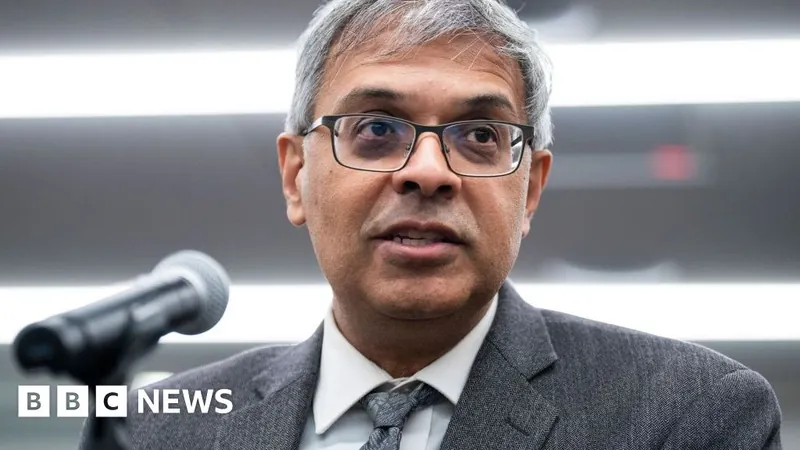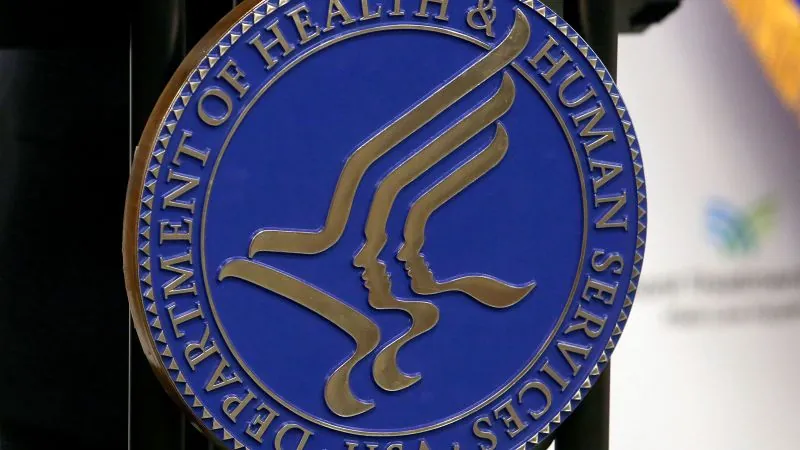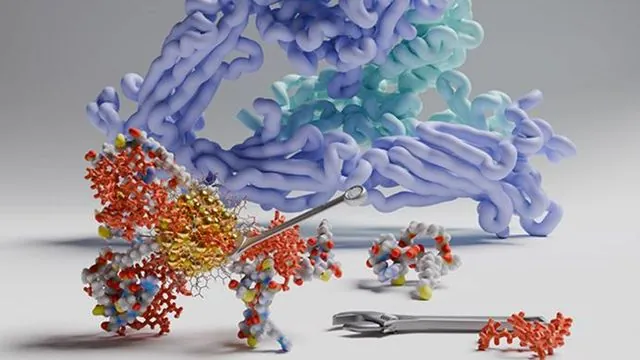
Trump Appoints Covid Lockdown Skeptic Jay Bhattacharya as NIH Director: What This Means for US Health Policy
2024-11-27
Author: Emma
Trump's Controversial Appointment
In a controversial move, President-elect Donald Trump has appointed Jay Bhattacharya, a prominent critic of Covid-19 lockdown measures, as the next director of the National Institutes of Health (NIH), a leading government agency in biomedical research. This appointment is part of Trump's broader strategy to reshape the public health landscape as he prepares to take office on January 20.
Background on Jay Bhattacharya
Bhattacharya, a physician and economist from Stanford University, came to national prominence during the pandemic when he co-authored the Great Barrington Declaration in October 2020. This open letter advocated for an alternative approach to pandemic response, emphasizing the protection of vulnerable populations like the elderly rather than implementing widespread lockdowns—an approach that has stirred considerable debate among public health experts.
Trump's Vision for NIH
In making the announcement, Trump stated that Bhattacharya would be instrumental in revitalizing the NIH, focusing on fixing "America’s biggest health challenges, including our Crisis of Chronic Illness and Disease." Bhattacharya took to social media platform X (formerly Twitter) to express gratitude for the nomination, promising to restore trust in American scientific institutions and utilize quality research to improve public health.
Controversial Health Appointments
Bhattacharya is not the only nominee by Trump who has raised eyebrows among the medical community. The president-elect has also tapped Robert Kennedy Jr.—a known vaccine skeptic—as head of the Department of Health and Human Services. Kennedy’s stance has alarmed many health professionals, although his stringent views on food regulation have gained some favor.
Other Notable Appointments
Complementing this team is Jim O’Neill, a former health official and associate of influential conservative donor Peter Thiel, appointed as deputy health secretary. Other notable appointments include Dr. Marty Makary of Johns Hopkins University as head of the Food and Drug Administration (FDA) and Dave Weldon, a former congressman skeptical of vaccine safety, set to lead the Centers for Disease Control and Prevention (CDC).
Criticism of Bhattacharya's Appointment
Critics of Bhattacharya's appointment, including former NIH Director Francis Collins, have labeled the Great Barrington Declaration as dangerous, especially given its release before Covid vaccines were widely available. Collins referred to Bhattacharya and his co-authors as "fringe experts," indicating the polarized views on pandemic response strategies.
Implications for US Health Policy
The newly appointed health leadership will urge thorough examination and reforms across various health agencies, although they must first gain Senate confirmation. If successful, this shift towards a more skeptical approach to established public health measures could redefine US health policies, particularly regarding pandemics and chronic illness management.
Additional Controversies in Trump's Health Team
Interestingly, Trump's administration has also included Dr. Mehmet Oz, a TV personality—often seen as controversial due to his previous medical advice—as the nominee for the Centers for Medicare and Medicaid Services. Additionally, Dr. Janette Nesheiwat, known for her media presence, has been nominated for surgeon general despite criticism from some Trump supporters over her past positions on topics like abortion and school policies during the pandemic.
Conclusion
As this new public health team prepares to take shape, the implications of these appointments are sure to ignite further discussions surrounding public health protocols and the balance between individual liberties and collective safety in combating health crises.









 Brasil (PT)
Brasil (PT)
 Canada (EN)
Canada (EN)
 Chile (ES)
Chile (ES)
 España (ES)
España (ES)
 France (FR)
France (FR)
 Hong Kong (EN)
Hong Kong (EN)
 Italia (IT)
Italia (IT)
 日本 (JA)
日本 (JA)
 Magyarország (HU)
Magyarország (HU)
 Norge (NO)
Norge (NO)
 Polska (PL)
Polska (PL)
 Schweiz (DE)
Schweiz (DE)
 Singapore (EN)
Singapore (EN)
 Sverige (SV)
Sverige (SV)
 Suomi (FI)
Suomi (FI)
 Türkiye (TR)
Türkiye (TR)